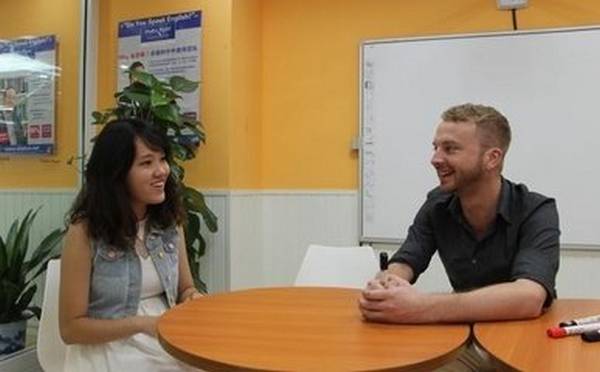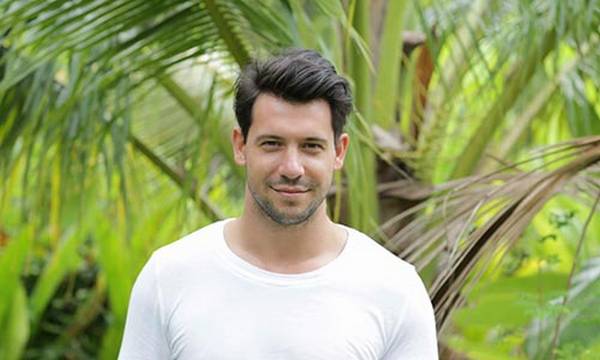- A+
很多家长都在想方设法地提高孩子的英语成绩,现在也有不少的家长希望能多整理一些英语学习资料,让自己的孩子查漏补缺,争取英语成绩能够突飞猛进。
今天,奇速君给童鞋们说的就是英语短语、同义词的辨析,希望孩子能够好好学习:

1.either…or, neither…nor 和 both…andeither…or, neither…nor 和 both…and 都是并列连词词组。
either…or 和 neither…nor 连接两个主语时,谓语动词在人称和数上必须与后面的主语保持一致;both…and 连接两个主语时,谓语动词必须用复数。either…or 意为“或者……或者”、“要么……要么”;neither…nor 意为“既不……也不”;both…and 意为“两者都”。
There were either too big or too small.他们要么太大了,要么太小了。
Either you or I am right.要么你对,要么我对。
Neither you nor he has been there.你和他都没去过那里。
Both John and Ann have got pen-friends.约翰和安都有笔友。
He speaks both English and French.他讲英语和法语。
2.make sure, be sure
(1)make sure 意为“确保;确信;查明”,后面常接宾语从句及由 of 引起的短语。Make sure (that) he comes at once.一定叫他马上来。You’d better make sure of time.你最好查明时间。Make sure of it before you start out.出发前查明这件事。
(2)be sure 意为“肯定;确定”, be sure 后可跟不定式或“疑问词+不定式”,构成 be sure to do, be not sure whether to do 结构,要注意“疑问词+不定式”一般用在否定句中。be sure 后还可跟从句,肯定句后跟 that 从句,否定句后跟 if /whether 从句。He is sure to come.他肯定会来。I’m not sure whether to go there/when to leave.我不确定是否要去哪儿/何时离开。I’m sure that I can run faster than you.我确定自己比你跑得快。I’m not sure whether they can finish the job on time.我不确定他们是否能及时完成工程。Be sure to come to our party if you have time.如果有时间的话一定要来参加我们的聚会。Be sure to finish it as soon as possible.请务必尽快完成。
3.late,lately,later,latest
(1)late可作形容词或副词,意为“迟(的);晚(的)”。He often comes late for school.他上学常迟到。They were late for the film.他们看电影迟到了。
(2)lately 是副词,意为“最近;近来”相当于recently,常与现在完成时连用。I haven’t heard from him lately.我最近没收到他的来信。
(3)later为late的比较级,意为“较迟的(地)”。另外,还可用作副词,意为“后来”。He goes home later than anybody .他回家比谁都晚。See you later .回头见。
(4)latest为late的最高级,意为“最迟的(地)”;也相当于newest,意为“最新的”。I go to bed latest in the family.我是家里睡觉最迟的。Here is the latest news from abroad.下面是来自国外的最新消息。
4.sick,ill
(1)sick和ill都有“患病”之意,都可以作表语,美国英语中常用sick作表语。英国英语中常用ill作表语。His mother is ill.(英国用法)他的母亲生病了。His mother is sick.(美国用法)
(2)但用在名词前作定语时,英国英语、美国英语均用sick而不能用ill.He is looking after his sick mother.他在照顾生病的母亲.
5.would like,feel likefeel like和would like 都表示“想要干某事”。
(1)feel like 中的like是介词,后跟名词或动名词.如:I feel like sleeping/taking a walk.我想睡/散步。I don’t feel like walking very much today.今天我不想走太多的路了。Do you feel like having something to eat?你想要点东西吃吗?I feel like a cup of tea. 我想喝杯茶。I feel like some fish and chips for supper.晚饭我想吃些鱼和土豆条。It’s so hot. I feel like a swim.天真热,我想去游泳。
(2)would like 中的like 是动词,后跟不定式或名词。如:What would you like to do now ?你现在想做什么?I would like to have dinner with you.我想和你一起吃饭。I would like to talk to you for a minute .我想和你谈一下。Would you like some help?你需要帮助吗?
6.cause, reason
(1)cause是造成一种事实或现象的“原因”。后接介词of.如:Carelessness is the usual cause of fire.造成火灾的原因通常是不谨慎。Heat is the cause of the expansion of matter.热是物体膨胀的原因。
(2)reason是说明一种看法或行为的“理由”。后接介词for.如:You must tell him the reason why you won’t accept his offer.你必须告诉他你为何拒绝他的提议。
7.get through, go through
(1)get through 和 go through 表示“通过(某地、议案等);用完”时可互换使用。The man was so fat that he couldn’t get/go through the door。那人胖得连那扇门都过不去。The plan for this term will have to get/go through the leading group of the school。本学期计划得经校领导班子通过。I have got/gone through three pairs of shoes in a month..这一个月内我穿坏了三双鞋。
(2)get through 和 go through又各有其意义:get through :通过考试;接通电话I got through everything except English .除英语外我别的都极格了。I can’t get through to Beijing.The line is busy.我打不通北京的电话,占线。go through:检查;看一遍;经历(困难,痛苦)I went through my homework to make sure that nothing had been missed.我将作业检查了一遍,以确定什么都没有漏掉。Go through the text from the beginning .把课文从头看一遍。She must have gone through a lot.她一定吃了不少苦。
8.manage to do, try to do ,try doing
(1)manage to do 意为“设法做成了某事”,强调其结果是成功的。The firefighters managed to put out the fire at last.消防队员们终于设法扑灭了大火。He managed to do the operation with very little help.在没有多少帮助的情况下,他设法把手术做成功了。
(2)try to do意为“尽力做某事”。如:You have to try to write every word neatly and correctly 。你得尽力把每个字写得既清楚又准确。He tried to open the door,but he couldn’t . 他想把门打开,但未能做到。
9.loving,lovely,lovable
(1)loving意为“爱慕的;钟情的;深情的。”He gave her a loving kiss.他给了她一个深情的吻。
(2)lovely 意为“可爱的,美丽的;迷人的”。The house has many large rooms and there is a lovely garden.这幢房子有很多大房间,并有一个惹人喜爱的花园。
(3)lovable 意为“可爱的,惹人爱的”。多形容人或动物。有时可以与lovely互换。She is a lovable child.她是个可爱的孩子。It is a lovable kitten.它是一只可爱的小猫。
10.appear,seem
(1)两者用法基本相同,都可作”看起来(好像)……”讲,后面可跟形容词,分词,名词,不定式或that从句。It appears/seems that he will win the prize.看来他要获奖了。
(2)seem可跟随as if 从句,而appear不能,appear强调外表上给人某种 印象,有时含有实质上并非如此之意;而seem则暗示判断有一定根据,这种判断往往接近事实.At that time, it seemed as if I couldn’t think of the right word anyhow.当时,我似乎怎么也想不出一个恰当的字眼来。His health seems to have grown better.他的健康似乎有所好转。He seems to be sick, for he appears pale. 看样子他病了,因为他面色看起来很苍白。He appears to know more than he really does.他看起来好像懂得很多,其实懂得没有那么多。
11.speak, talk,say,tell
(1)speak强调说话的能力、方式和对象,不强调说话的内容,常以某种语言作宾语,作不及物动词时,常见搭配有:speak of sth./sb.“谈到某事,某人”,speak to sb.“与某人说话”。Can you speak French?你会说法语吗?Whom did you speak to just now?你刚刚在跟谁说话?
(2)talk 是不及物动词,着重强调两个人之间的相互说话,常见词组有:talk with sb.和某人谈话 talk about sb./sth谈论某人、某事.talk of 谈到 talk to sb与某人谈话She is talking with Mark in French.她正跟马克用法语交谈。We are talking about our summer holiday.
我们在谈论暑假。.
(3)say 一般作及物动词,强调说话的内容。What did you say just now?你刚刚说了什么?Let’s go and say hello to him.让我们去向他问个好吧(4)tell常作及物动词,表示“讲述,告诉”,后面常跟随双宾语,即tell sb.sth..还可用在tell of sb./sth.中。I will tell you the truth tomorrow.我明天将告诉你实情。He often tells of his sister.他经常谈到他的姐姐。
12.occur, happen, take place 的区别都表示发生,都是不及物动词,不能用于被动语态中,也不能把过去分词用来作形容词。
(1)happen往往还有“偶然”或“未能预见”的意思。I didn’t buy it, because it happened that I had no money on me.我没买那东西,因为当时碰巧身上没带钱。
(2)occur有时按计划使某些事或结果“发生”,有时强调“呈现”于人的知觉、心脑。It didn’t seem to have occurred to him that the masses, once mobilized, could work greater wonders than any individual could dream of .他仿佛没有想到群众一旦动员起来,可以做出任何人所梦想不到的奇迹
(3)take place可指事件“发生”,但更常用表示“举行”。The meeting took place in the great auditorium. 会议在大礼堂里举行。
13.carry, bring, take, fetch, get的区别
(1)carry指随身携带,不特别表示带到什么地方,而携带的方式是提、扛、背、抬等。He was 
carrying a wooden box on his shoulder. 他肩膀上扛着一个木箱。
(2)bring指从别处把东西拿来,其后可跟双宾语、直接宾语,也可以是抽象名词。Please bring me a new pencil. 请给我拿支新铅笔来。
(3)take指把东西从说话人这儿带到别处去,同bring方向正好相反。The monkey took the tiger to a big river. 猴子把老虎带到大河边。
(4)fetch和get意思差不多,指去别处拿来,等于go and bring, 表示一往一返。get常用于口语。Let’s fetch some water. 咱们去打点水来。
14.laugh, smile的区别
(1) laugh指一般的笑,或出声大笑。He laughed loudly when he heard what I said. 他听见我说的话之后,放声大笑。
(2)smile 指无声地“微笑”。We can see from far that our guests are smiling and waving at us.从远处我们可以看见我们的客人在向我们微笑,在向我们挥手。
15.almost, nearly 的区别
(1)almost = very nearly都表示“几乎,差不多”,常可通用。It’s almost / nearly two o’clock, 差不多两点了。He fell off a tree and almost / nearly died. 他从树上摔下,险些丧命。解析:从实际事实角度讲,almost比nearly的“差距”更小。从说话人的心理角度讲,nearly暗含“仍有差距”,almost暗含“似无差别”比如上面的例句。第一句用almost 比nearly反映出实际时间更接近two o’clock, 但用almost时反映出说话人的心理活动是
“还差一点才到整两点”。若用nearly则心理活动是“可以说已到整两点”。第二句也是这样。用almost的心理活动是“仍活着”,用nearly是“快死了”。可以看出心理角度的不同决定着对二者的选用。
(2)almost和nearly可以互换的场合。I.在肯定句中。I’m almost / nearly 90 years old. 我差不多快90岁了。She fell and almost / nearly broke her neck. 我跌倒了,颈骨险些骨折。II.修饰all, every, always等时。I almost / nearly always go to bed at eleven. 我差不多总是11点钟上床睡觉。III.在行为动词的否定式前。He almost / nearly didn’t hear what I said. 他几乎未听见我讲了些什么。
(3)只能使用almost 的场合。I.修饰no, none, never, any 以及no 和any的合成词。I have almost nothing to do today. 我今天几乎什么都没做。This word is to be found in almost any dictionary.这个词几乎在任何一本词典中都能查到。This is almost none left. 几乎没有人走。II.修饰表示感觉或心境的动词和形容词。You could almost imagine you were on Switzerland. 你几乎可以设想你在瑞士。I almost think you’re right. 我还不完全相信你是对的。III.修饰move than和too.That’s almost too much.那简直太过分了。注意:谓语动词不是行为动词时,almost不与not 连用。
(4)只能用nearly的场合,被very, not, 
pretty所修饰时。I’m not nearly ready. 我还没有准备好。I know pretty nearly all the secrets of her married life.她的婚姻生活的秘密我几乎全部知道。注意:not nearly = far from, much less than. 差得远,远远不够。There’s not nearly enough money for a new car. 买一部新车的钱,还差得很远。I.表示快要做什么事,但后来“没有做”或“避开不做时”。
We nearly called to see you last Saturday. 我们上星期六差点来看你。
16.common与ordinary
(1)common意为“普通的,一般的,平常的”,是指符合或具有同类的人或事物所共有的特征。例如:common sense 常识,a common mistake 一般的错误,common people老百姓,common knowledge人所共知的事。Heart disease is one of the commonest causes of death. 心脏病是最常见的死因之一。
(2)ordinary 在意思上与common很接近,也有“平常的”“普遍的”之意。但其着重点与common不同,common着重于共性,而ordinary则侧重于平常,具有并无非常或独特之处之意。例如:an ordinary teacher 一个普通教师,不能说成a common teacher.Our chemistry teacher is an ordinary little man with thick glasses.我们的化学老师是一个相貌平常的,戴深度眼镜的小个子男人。
17.each other与one another 的区别
each other和one another是两组相互代词,一般说来,each other 用于两个人或两个事物之间,但这种区别在现代英语中已不明显。You and I know each other very well。 你我相互都很了解。All the children here are fond of one another。 这里所有的孩子相互都很喜欢。注意:each other有时可分开使用,这时each可以用作主语。Each tries to do better than the other in their work.每个人在工作中都尽力比别人做得更好。
奇速英语思维导图速记初中1600单词
奇速英语课程
------------------------
奇速英语全国独家在线直播课程寒假班开招了 —— 思维导图/24个故事32-48小时奇速征服小学800/初中1600/高中3500词汇+听说读写联动提升课程,线上网络直播,线下集训营开始咯,详情咨询奇速英语陈老师微信:qisu-chen
篇幅有限,更多内容请关注奇速英语微信公众号:qisuen 获取更多英语资料。
如果您孩子英语学习有困难,单词记不住,学习没兴趣,成绩时起时伏,欢迎参加奇速英语公益讲座,讲座详情请加奇速英语陈老师 微信:18982092551 QQ :1687730767 (02)
